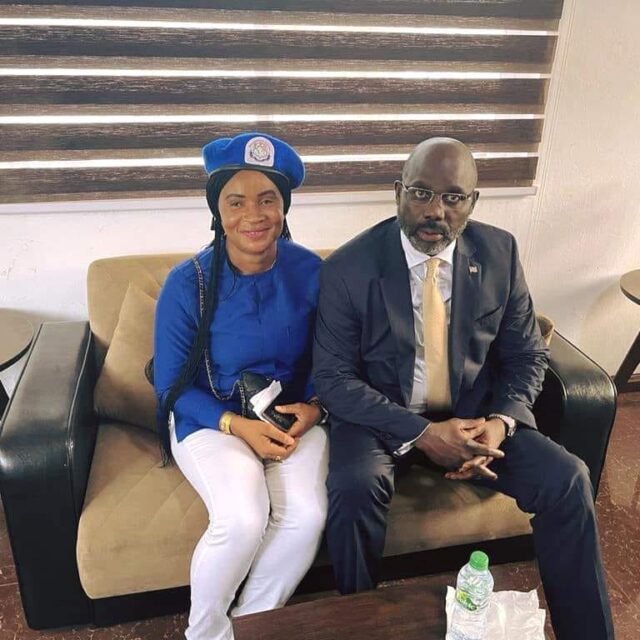
Although Liberia’s President George Manneh Weah promised world leaders at the “2023 US Summit for Democracy” that the upcoming October 10, 2023, elections would be peaceful, enhancing the nation’s reputation as a democracy and showcasing Liberia as a bastion in Africa, this appears to be far from reality as he continuously disregards the Code of Conduct (CoC).
The CoC, approved by former President Ellen Johnson Sirleaf in 2014, safeguards the electoral process and holds public officials accountable for using government assets and resources during elections.
Part V of the CoC, which sets restrictions for government officials appointed by the President who desire to contest in any electoral process, has been repeatedly disrespected by the Liberian leaders and his officials, evidenced by the increasing number of resignations this April to contest the October 10 elections.
Section 5.1 of the 2014 CoC says, “All officials appointed by the President of the Republic of Liberia shall not: a) engage in political activities, canvass, or contest for elected offices; b) use government facilities, equipment, or resources in support of partisan or political activities; c) serve on a campaign team of any political party or the campaign of any independent candidate.”
5.2 Wherein any person in the category stated in section 5.1 herein above desires to canvass or contest for an elective public position, the following shall apply;
a) Any Minister, Deputy Minister, Director-General, Managing Director, and Superintendent appointed by the President under article 56 (a) of the Constitution and a Managing Director appointed by a Board of Directors who desires to contest for public elective office shall resign said post at least two (2) years before the date of such elections;
b) Any other official appointed by the President who holds a tenured position and desires to contest for elective office shall resign said post three (3) years before the date of such public elections; c) However, in the case of impeachment, death, resignation, or disability of an elected official, any official listed above, desirous of canvassing or contesting to fill such a position must resign said position within thirty days following the declaration by the National Elections Commission of the vacancy.
Since the enactment of the CoC in 2014, there have been issues with adherence among appointed government officials, leaving interpretation to the Supreme Court for a way forward.
Throwback
When Abu Kamara, now representative of Montserrado County District 15, applied to contest the 2017 elections, the National Elections Commission (NEC) rejected his application because he served as Deputy Minister at the Ministry of Transport.
He appealed the NEC’s ruling to the Supreme Court; Cllr. Arthur Johnson, the lawyer representing Kamara, received harsh criticism from the Bench for ignoring a previous decision of the high court on the CoC involving Selena Mappy Polson.
The former Bong County Superintendent Polson argued that the CoC conflicted with some articles of the 1986 Constitution. Due to her role as superintendent, Polson also received a rejection letter for the 2017 election.
Dr. Michael Slewion, then Director General of the Commission on Higher Education, was nominated to contest the Nimba County District #9 Representative seat. Still, his nomination was revoked after a concerned citizen of Nimba, Dahn Sherman, accused him (Slewion) of violating the CoC.
Like Kamara and Polson, Slewion was also found liable by the NEC, and all appeals to challenge the commissioners’ decision were denied, and they were prevented from contesting.
Despite these instances, Weah, who during his days in opposition called on government officials to uphold the CoC, now sits in the king’s seat and has refused to do what he advocated for.
Due to the president’s refusal to uphold the CoC, its provision that speaks to public government officials’ access deceleration has been amended from publication deceleration to private. According to the amended CoC, official access can only be made public based on a request by the Supreme Court, which has created a bottleneck for citizens to hold their leaders accountable.
The amended CoC was completed and submitted to Weah in 2022, which, according to Isaac Kelgbeh, Presidential Press Secretary, has been signed by the president but is yet to be printed on the handbill.
The amendment also seeks to impose upon certain appointed officials of the Government of Liberia (GOL), certain officials of public corporations owned by the Government of Liberia (GOL), and certain officials of entities established by the National Legislature the obligation to resign their employment with the GOL, its corporations, and entities at least one year before the date of any election for which any such official intends to contest.
If passed into law, the amendment will reduce the resignation period from two years for officials appointed at the will and pleasure of the President and three years for officials with tenure to one year.
Almost seven months after submitting the amended CoC to Weah’s office, Executive Order #117 was issued, requiring all elected officials to resign by April 7, 2023, if they desired to contest the upcoming elections.
The executive order now allows appointed officials to resign only six months before the October 10 general elections, which violates the existing CoC and the amended version, which has yet to be printed in a handbill.
However, the Supreme Court ruled that the executive order was null and void because it never existed. It claims that the phrase “who desires to contest for any elected office” contradicts the executive order.
Despite the high court mandate, social media has been flooded with resignations, even though the president has yet to act on them.
Appointed Official Aspirants
| Name | Contesting for | District | County | Position |
| Josephine Davies | Representative | 10 | Montserrado | Inspector General, Commerce |
| Anthony Quiwonkpa | Representative | 3 | Nimba | Deputy Minister without Portfolio |
| Johnson Quaqua | Representative | 5 | Lofa | Labor Commissioner, Bassa |
| Barbara Keah | Representative | 1 | Sinoe | Development Superintendent |
| Duanna Kamara | Senator | Bomi | Managing Director, Liberia Water, and Sewer | |
| Alex Noah | Representative | 3 | Sinoe | Sinoe Port Manager |
| Zinnah Norman | Representative | 1 | Bopolu | City Mayor |
| John Flomo | Representative | 4 | Monteserrado | Director General Liberia Agriculture Commodity Regulatory Authority(LACRA) |
| Betty Doh | Representative | 3 | Grand Gedeh | Assistant Superintendent for Development |
| J. Tian Nagbe | Senator | Maryland | Executive Director, National Identification Registry(NIR) | |
| Janjay Baikpeh | Representative | 3 | Grand Bassa | Superintendent |
| Abraham Jackson | Representative | 1 | Maryland | District Commissioner |
| Moses Stubblefield | Representative | 1 | Bong | County Inspector |
| William Thompson | Representative | 6 | Bong | Deputy Minister, Ministry of Labour |
| Sayblee Weyea | Representative | 3 | Bong | Labour Commissioner |
| Emmanuel Torr | Representative | 4 | Bong | Deputy Minister, Public Works |
| Ruth Sawmadal | Representative | 2 | Rivercess | Assistant Minister for Administration at the Ministry of Internal Affairs |
| Ellen Blessing Tweh | Representative | 1 | Maryland | City Mayor |
| Maxwell Grisgby | Representative | 1 | Sinoe | Chairperson at Liberia National Commission on Small Arms |
The names above are not yet candidates for the October election, but some have resigned from their various position after the Executive order was issued
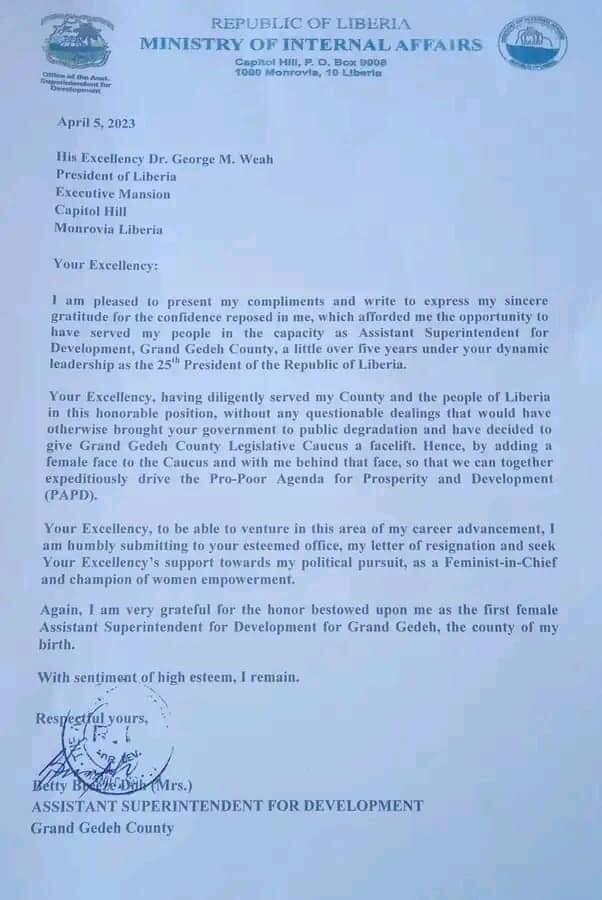
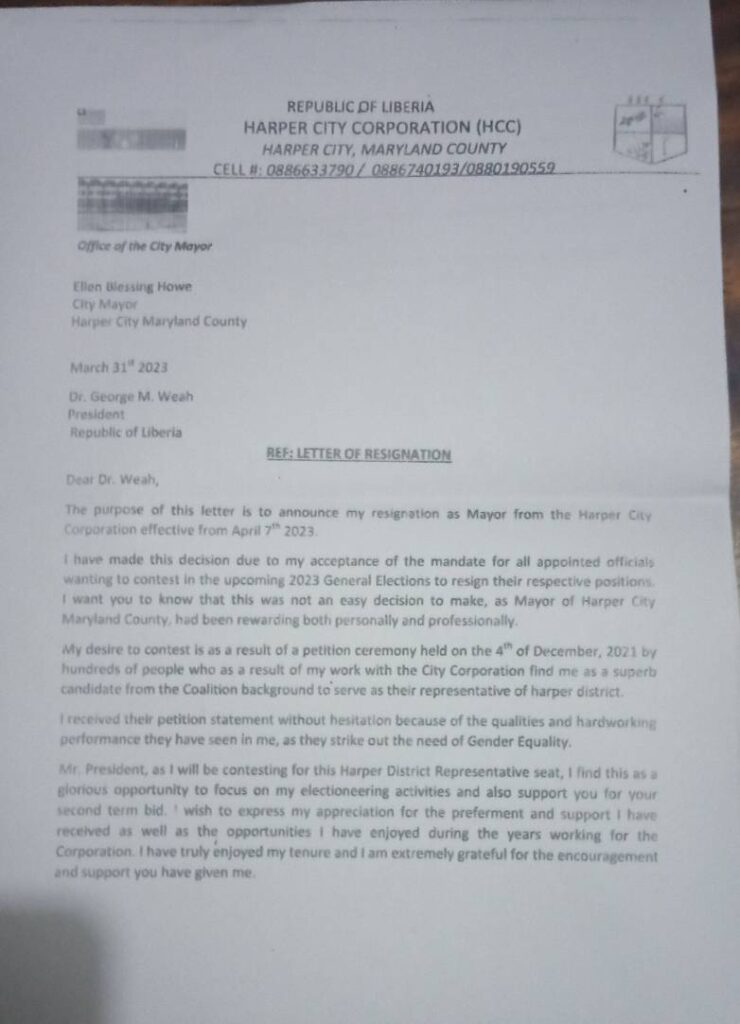
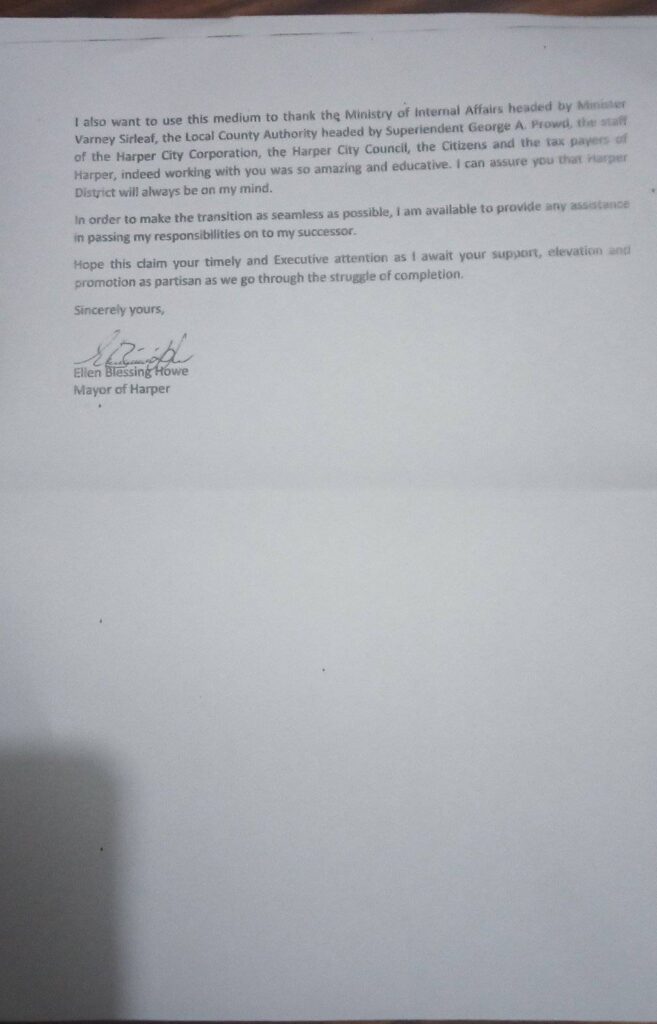
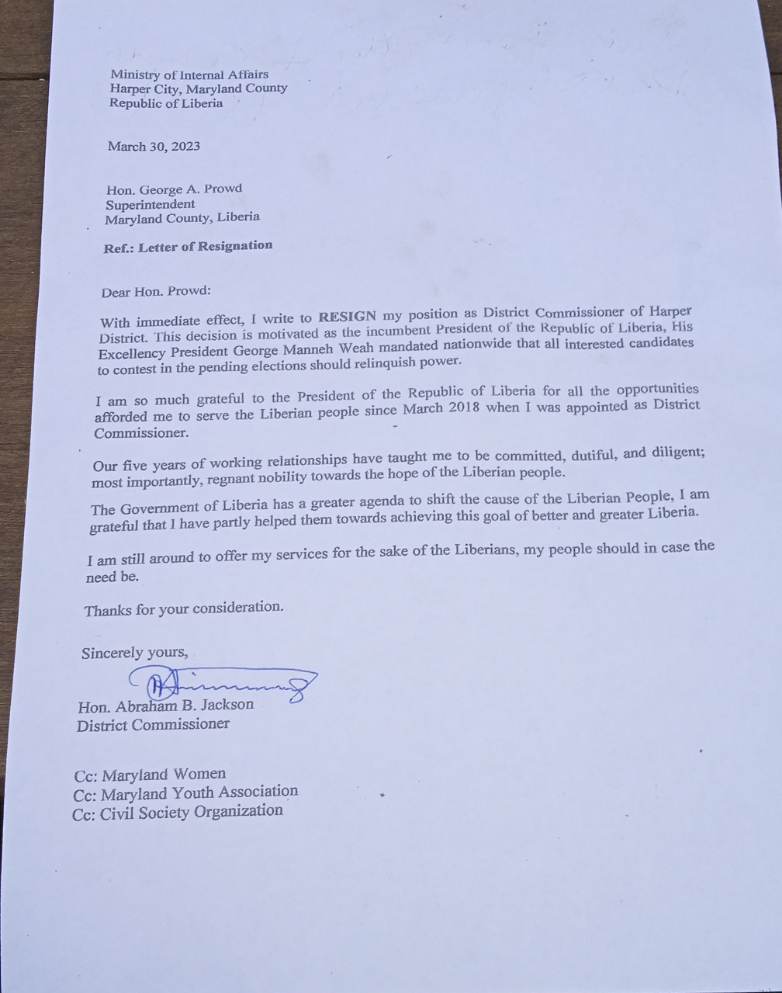
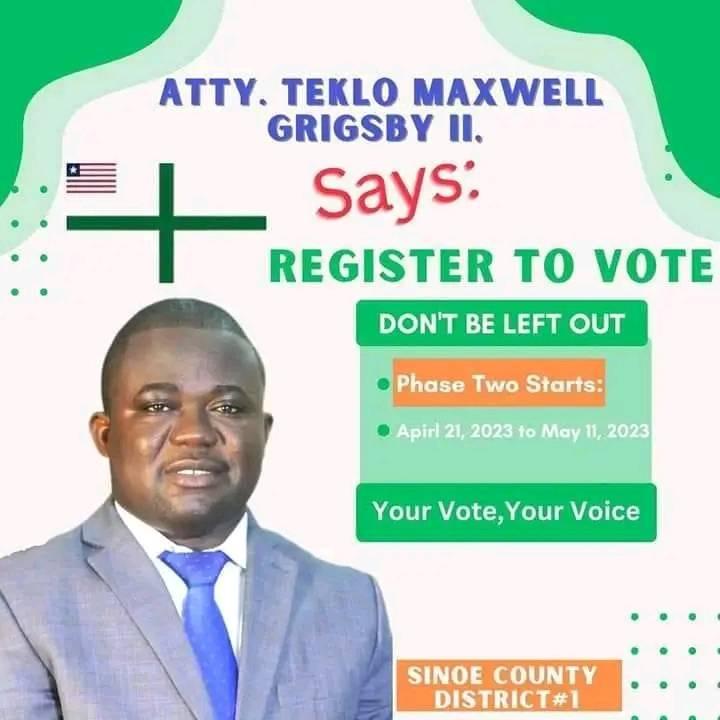



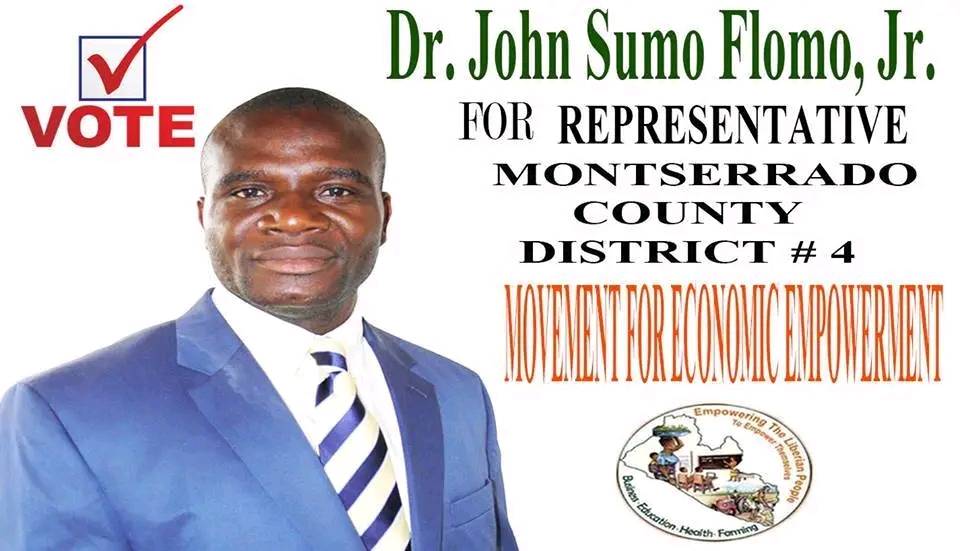
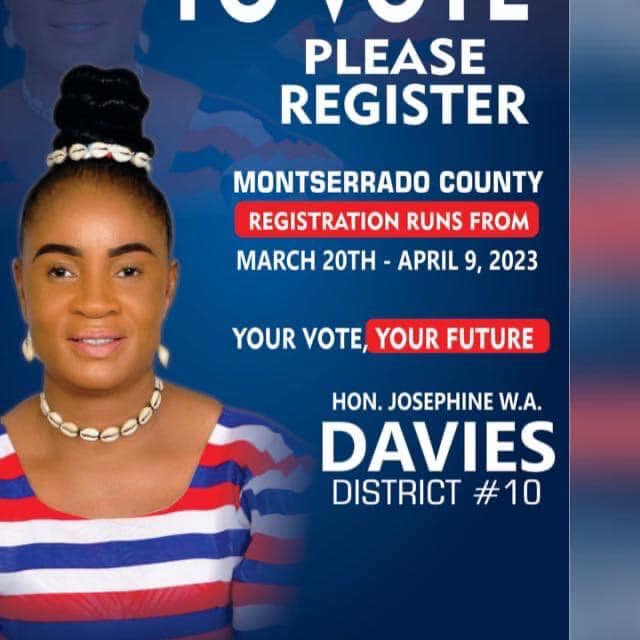
Not Weah’s first Violation
Since Weah’s ascendancy to power in 2018, his officials have been constantly in the habit of violating the CoC, and he, as head, has been mute. TSM-Liberia closely examines the most recent 2020 senatorial election held in the country.
In the 2020 senatorial elections, J. Emmanuel Nuquay, then head of Liberia Civil Aviation, contested in Margibi. Gbezongar Findley, who served as Minister of Foreign Affairs, contested in Grand Bassa.
Nuquay’s resignation letter was accepted three months before the elections, while Gbezongar resigned in July; both officials participated in the process that year.
The same year, Mulbah Morlu, Chairman of the ruling Coalition for Democratic Change (CDC), named scores of newly appointed government officials to the party’s campaign committee for the ensuing December 8 senatorial elections across the country.
Again in 2022, Morlu named a special committee on strategic planning and political engagement, including government officials violating Chapter 5.10 of the CoC.
“Every Employee of Government shall ensure that his or her participation in political activities does not bring him or her into conflict with official duties,” the CoC reads.
Eddie Jarwolo, Executive Director of Naymote, said the pronouncement by Weah is a cover-up because it will not be enforced.
“The president knows he is in error; he sees pre-campaigning and is silent. His recent statement about the resignation will not be enforced; some may abide, but the law is being violated. “It is a waste of time and tends to undermine the integrity of the Elections Commission,” Jarwolo said.
Loretta Pope-Kai, the head of the National Civil Society, stated, “The Code of Conduct is a perfect enabler for a level playing field that facilitates the fair and equal participation of all.”
“This further bars people privileged to hold public offices from unduly influencing or inducing electorates at the expense of their positions.” Therefore, it is necessary for anyone who intends to run for public office to resign from the CoC.
It is the last year of the President’s first constitutional tenure, and the CoC has not been implemented to the extent that even the ombudsman that is to be appointed by the president to monitor the law is yet to be named, less than six months before the October 10 elections.
Pope-Kai, like other Liberians, wants the ombudsman, vested with the responsibility to enforce the CoC and scrupulously monitor public officials vying for elective posts, to be appointed.
Weah was elected to power under the “Change for Hope” campaign that promised to undo all the negative aspects of the previous administration, which gave birth to the “Pro-Poor Agenda for Change and Prosperity.” But Weah’s constant abuse of the CoC has given his administration a bad reputation and exposed their disrespect for the rules of law, which cannot be justified.
Contributors: Gbanquoi Dolo, Bryan Dolo, Methuselah Gaye




